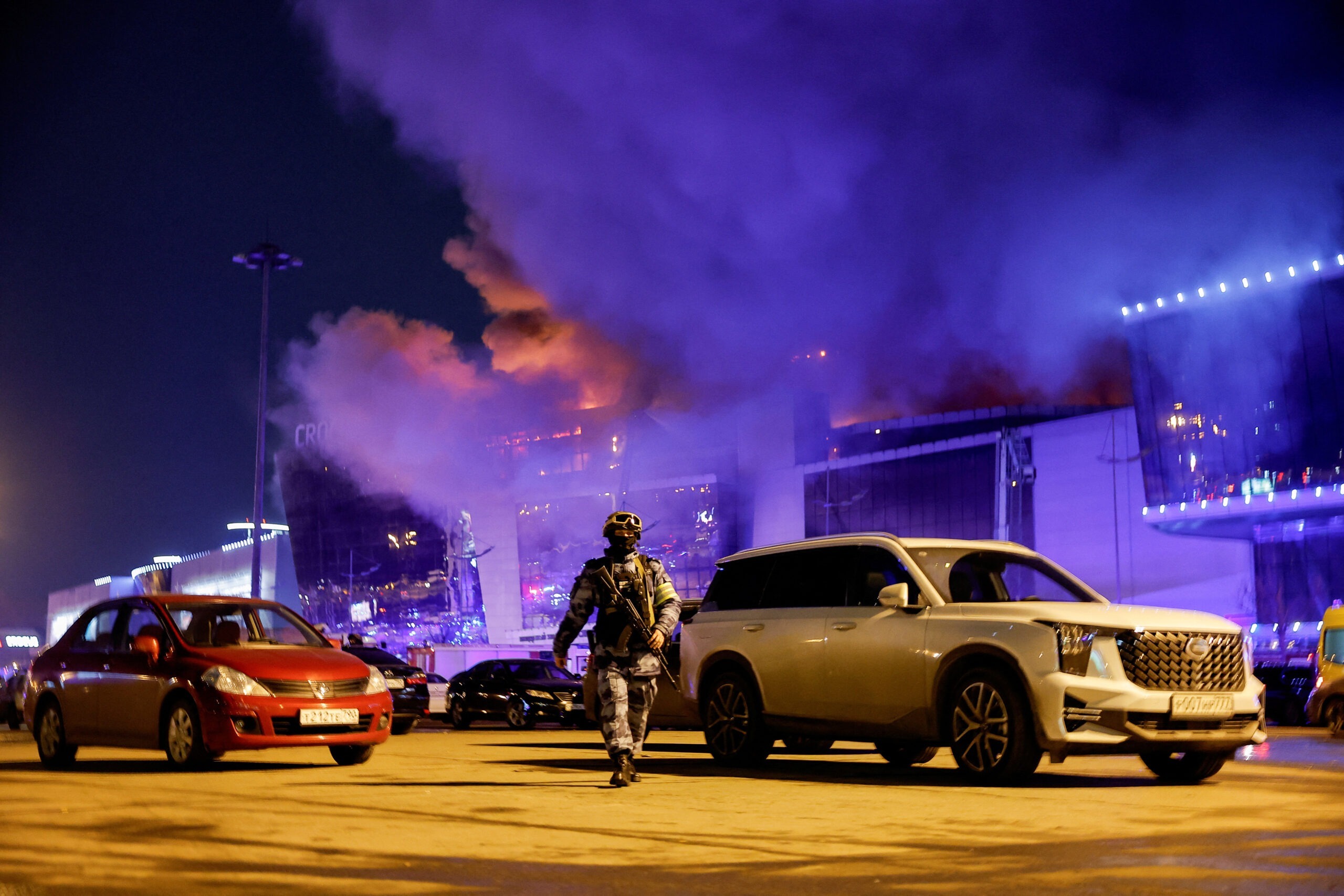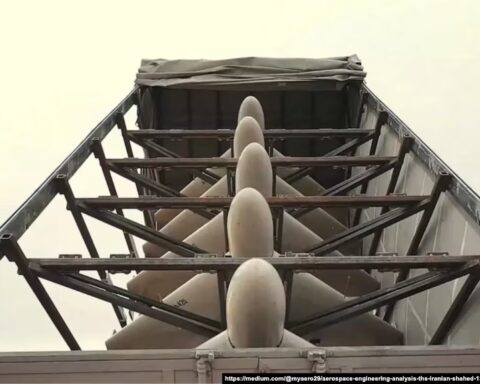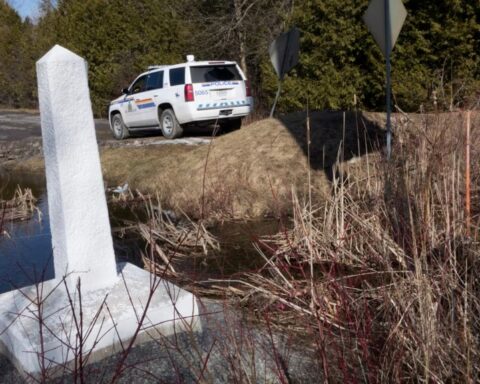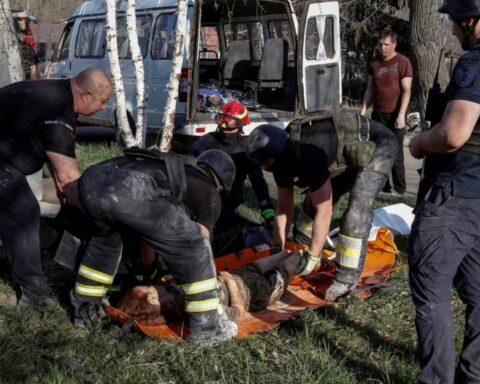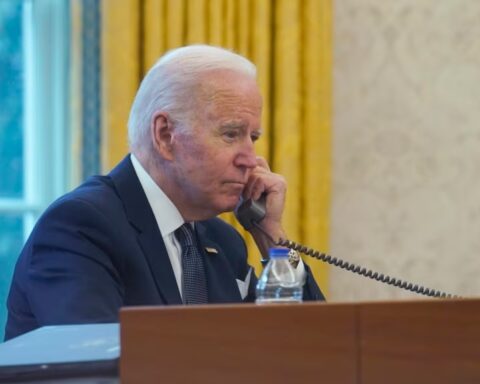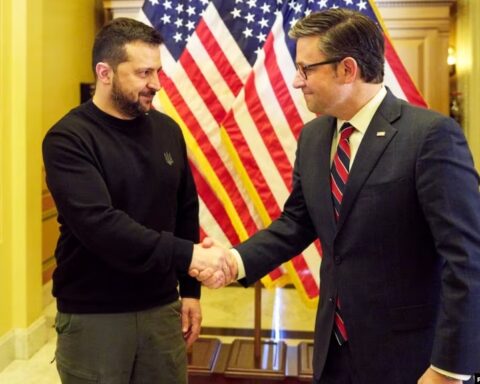MOSCOW — Assailants opened fire at a large concert hall in Moscow on Friday, killing more than 60 people, injuring more than 100 others, and setting fire to the venue.
The Islamic State group claimed responsibility for the attack in a statement on the group’s Telegram channel.
In a statement posted by its Aamaq news agency, the group said it attacked a large gathering of Christians in Krasnogorsk on Moscow’s outskirts, killing and wounding hundreds.
On Friday, several gunmen dressed in camouflage burst into the Crocus City Hall, a 6,200-seat venue on the Western edge of Moscow, according to witnesses and social media posts.
Video posted on social media show people rushing for the exits as repeated volleys of gunfire are heard. Other videos show men with rifles moving through the venue and shooting people at point-blank range.
The assailants also threw explosives, setting off a huge fire at the complex.
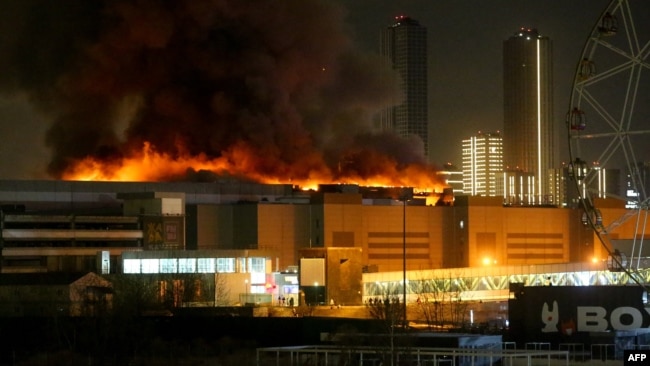
Video from outside the building showed helicopters flying overhead to dump water on the blaze. Media reports said the roof of the building had partially collapsed.
Russia’s Federal Security Service put the death toll from the attack at more than 60 people. Russian health authorities released a list of 145 injured — 115 of them hospitalized.
US warned of extremists
The United States collected intelligence earlier this month about a planned terrorist attack in Moscow, potentially targeting large gatherings. The U.S. government “shared this information with Russian authorities in accordance with its longstanding ‘duty to warn’ policy,” Adrienne Watson, National Security Council spokesperson, said in a statement Friday night.
The U.S. embassy also issued a warning earlier this month that “extremists” had imminent plans for an attack in Moscow. Those warnings were repeated by other Western embassies and came hours after Russia’s top security agency said it foiled an attack the Islamic State group was preparing for a Moscow synagogue.
The New York Times reported Friday that the U.S. intelligence specifically involved Islamic State-Khorasan, known as ISIS-K, the branch of the group based in Afghanistan. ISIS members have been active in Russia, one U.S. official told the paper.
Moscow mayor cancels gatherings
Friday’s attack came just days after Russian President Vladimir Putin won reelection in polls in which he faced no effective opposition due to the intimidation or jailing of most potential opponents.
The Kremlin said Putin was informed about the attack minutes after it began.
“The president constantly receives information about what is happening and about the measures being taken through all relevant services. The head of state gave all the necessary instructions,” Kremlin spokesperson Dmitry Peskov said.
Following the attack, Moscow’s mayor canceled all large gatherings and ordered theaters and museums to close for the weekend. Large-scale events were also canceled across the country.
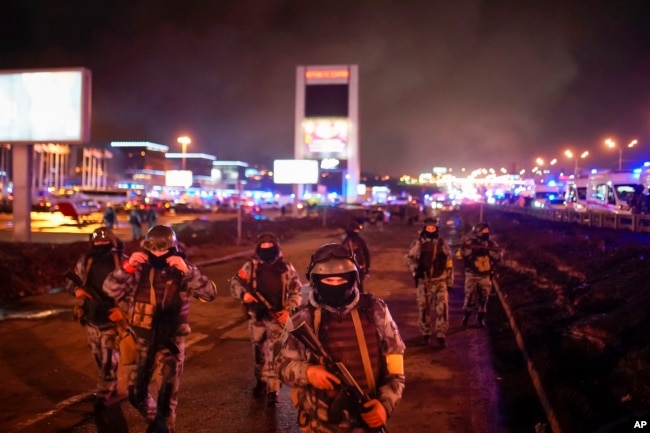
It is not clear what happened to the assailants after the attack.
The Islamic State group said its fighters carried out an attack on the outskirts of Moscow, “killing and wounding hundreds and causing great destruction to the place before they withdrew to their bases safely.” The statement gave no further details.
Islamic State operates mainly in Syria and Iraq, but also in Afghanistan and parts of Africa.
Ukraine denies involvement
The Kremlin did not immediately blame anyone for the attack, but some Russian lawmakers were quick to point a finger at Ukraine, where Russia has been carrying out a full-scale war for more than two years.
Mykhailo Podolyak, an adviser to Ukrainian President Volodymyr Zelenskyy, denied any involvement by Ukraine.
“Ukraine has never resorted to the use of terrorist methods,” he posted on X. “Everything in this war will be decided only on the battlefield.”
Earlier this week, Putin said the Western embassy warnings about a possible attack in Moscow were an attempt to intimidate Russians. “All that resembles open blackmail and an attempt to frighten and destabilize our society,” he said.
John Kirby, spokesperson for the White House National Security Council, told reporters on Friday that “the images [from the attack] are just horrible. And just hard to watch.”
“Our thoughts are going to be with the victims of this terrible, terrible shooting attack,” he said.
Responding to a question about whether Washington had any information about the assault before it happened, Kirby responded: “I’m not aware of any advance knowledge that we had of this terrible attack.”
Deadliest attack in decades
Friday’s attack was the deadliest in Russia in years.
In 2004, Islamist militants took hundreds of people hostage at a school in Beslan in southern Russia. More than 330 died in that attack, half of them children.
In 2002, Chechen militants took about 800 people hostage at a Moscow theater. Special forces attacked the theater to end the crisis and 130 people were killed, most of them from the gas that Russian forces used to subdue the attackers.
Some information in this report came from The Associated Press, Reuters, and Agence-France Presse.



